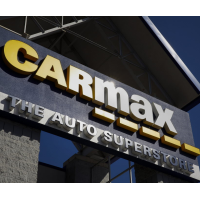Consumer Groups Want CarMax Investigated; Assembly Wants It Venerated

Back in June 2014, the nation’s largest used car dealer, CarMax, was under siege by angry consumer groups who complained―mostly to the Federal Trade Commission (FTC)―that the company was misleading buyers by selling factory-recalled vehicles as certified safe, and maybe bait-and-switching cars to dump them.
Eleven groups petitioned (pdf) the FTC to investigate the company’s sales and advertising practices, notify everyone they sold a car to that had an outstanding recall notice, and stop doing what they’re allegedly doing.
That hasn’t happened.
So this week, a couple of Sacramento advocacy groups, the California Public Interest Research Group Education Fund and the Consumers for Auto Reliability and Safety Foundation, issued a report that documents CarMax practices in California and calls for the state Attorney General and the Department of Motor Vehicles (DMV) to investigate.
The researchers who put “CarMax’s Sales Practices Endanger Lives in California” (pdf) together looked at data from two CarMax stores, in Sacramento and Oxnard, during two days in May. The Sacramento store handled 386 cars, 34 of which had recall notices, and the Oxnard store was 46 out of 455.
Defects subject to recall included air bag failure, bad wiring, key system failures and stalled engines.
The report argues that there is something fraudulent about heavily advertising a vehicle as “CarMax Quality Certified, which means every used car at CarMax must pass a Certified Quality Inspection,” when it has those known defects.
The company counters that its disclosure statement is clear―“CarMax does not guarantee a recall-free vehicle”―but critics have asked, in how many other industries is a recalled product allowed to be sold with a warning that it should be fixed?
Federal law prohibits the sale of new cars already under recall, but not used cars. That has become problematic with the escalating number of recalls. One-fourth of U.S. vehicles, 64 million, were recalled last year. That is twice as many as any previous year.
CarMax sells around 580,000 vehicles a year and having to hold a vehicle until it is fixed is becoming an increasingly large threat. The Virginia-based company could use a few friends and apparently it has them.
The state Assembly voted unanimously on June 2 for AB 287, which helps clarify for the buyer that a vehicle is under recall, but would only restrict the sales of recalled used cars that are classified as “Stop Sale-Stop Drive,” around 1% of sales. Dealers see the bill as protection against lawsuits that may arise from selling someone a known deathtrap.
It’s a lot easier these days for consumers to find out for themselves if their vehicle is under recall should they inadvertently fail to get a notice from the manufacturer, or miss the fine print in a used car sales agreement. There’s a database for that.
Pesky consumers could really gum up the used car business if they insist that the products they buy be safe, not just properly labeled as dangerous. But that may be a generational argument by older consumers not used to living in a technologically-accelerated culture with an altered definition of reliability.
–Ken Broder
To Learn More:
California Groups Say Carmax Sells Unsafe Used Vehicles (by Mark Glover, Sacramento Bee)
Consumer Groups Seek Probe into Carmax Sales of Unrepaired Recalled Cars (by Jerry Hirsch, Los Angeles Times)
11 Consumer Groups Ask F.T.C. to Investigate CarMax over Unfixed Recalled Cars (by Christopher Jensen, New York Times)
Car Dealers Seek to Legalize Sales of Unsafe, Recalled Used Cars to Consumers (Consumers for Auto Reliability and Safety)
“CarMax’s Sales Practices Endanger Lives in California” (CalPIRG Education Fund and Consumers for Auto Reliability and Safety Foundation) (pdf)
- Top Stories
- Controversies
- Where is the Money Going?
- California and the Nation
- Appointments and Resignations
- Unusual News
- Latest News
- California Forbids U.S. Immigration Agents from Pretending to be Police
- California Lawmakers Urged to Strip “Self-Dealing” Tax Board of Its Duties
- Big Oil’s Grip on California
- Santa Cruz Police See Homeland Security Betrayal in Use of Gang Roundup as Cover for Immigration Raid
- Oil Companies Face Deadline to Stop Polluting California Groundwater





